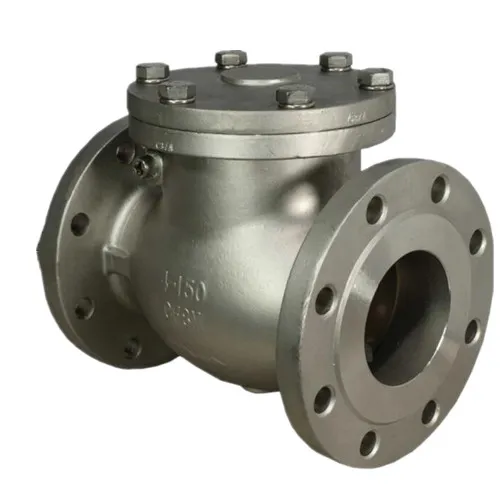Mobile:+86-311-808-126-83
Email:info@ydcastings.com
Exploring the Benefits of End Cap Steel in Construction and Manufacturing Applications
The Importance of End Cap Steel in Manufacturing
End cap steel is a vital component in various manufacturing processes, particularly in the production of pipes, tanks, and other vessels that require a secure closure. It plays a crucial role in ensuring the structural integrity and durability of these products, making it an indispensable material in diverse industries ranging from construction to energy. This article explores the significance of end cap steel, its applications, manufacturing processes, and the benefits it brings to industrial operations.
What is End Cap Steel?
End cap steel refers to steel components specifically designed to form the end caps of cylindrical products like pipes and tanks. These end caps serve multiple purposes, including sealing the ends of the pipes or tanks to prevent content leakage and enhancing their overall strength. Made from various grades of steel, including carbon steel, stainless steel, and alloy steel, end cap steel must meet stringent standards regarding durability and resistance to environmental factors.
Applications of End Cap Steel
The applications of end cap steel are vast and varied. In the construction industry, it is used in the manufacturing of pipes for water supply, sewage systems, and gas distribution, where durability and integrity are paramount. In the oil and gas sector, end caps are utilized in storage tanks and pressure vessels designed to hold volatile substances. Furthermore, in the chemical industry, end cap steel is integral to the production of reactors and storage tanks, which require strong, reliable closures to handle hazardous materials.
Additionally, end cap steel finds significant use in the automotive and aerospace industries
. Components such as fuel tanks, exhaust systems, and fuselage sections often incorporate steel end caps. The ability of steel to withstand high temperatures and pressures ensures the safety and reliability of vehicles and aircraft.Manufacturing Processes
end cap steel

The manufacturing of end cap steel involves several steps, including material selection, forming, welding, and finishing. The first step is choosing the right type of steel based on the expected application. For example, stainless steel is often selected for its corrosion resistance in challenging environments.
Once the material is chosen, the steel is cut into blanks and formed into the desired shape, typically through processes like hot forming or cold rolling. Welding techniques, such as resistance welding or TIG (Tungsten Inert Gas) welding, are employed to attach the end caps securely to the pipes or tanks. The final step involves various finishing processes, such as sandblasting and painting, to enhance the appearance and corrosion resistance of the end caps.
Benefits of End Cap Steel
The benefits of using end cap steel are numerous. Firstly, it enhances the structural integrity of pipes and tanks, enabling them to withstand internal and external pressures without deformation. The sealing capabilities of steel end caps ensure that contents remain secure, minimizing the risk of leaks and spills, which can have devastating environmental and safety consequences.
Moreover, end cap steel contributes to the longevity of products. Steel's inherent durability and resistance to wear and tear make it an ideal choice for long-term applications, reducing the need for frequent replacements and repairs. This not only saves money for manufacturers and operators but also reduces waste, contributing to more sustainable practices in industrial operations.
Finally, end cap steel can be customized to meet specific requirements, such as thickness, size, and tolerances, making it versatile for various applications across different industries. Companies can work with manufacturers to create tailored solutions that meet their precise needs, further enhancing the effectiveness and efficiency of their operations.
Conclusion
In conclusion, end cap steel is a critical element in the manufacturing of pipes, tanks, and other cylindrical products. Its applications span numerous industries, including construction, oil and gas, chemical manufacturing, automotive, and aerospace. With its sturdy nature and ability to seal securely, end cap steel not only ensures the safety and integrity of the products but also contributes to longer service life and cost savings. As industries continue to evolve, the importance of using high-quality end cap steel will only grow, underscoring the need for manufacturers to stay attuned to the latest advancements and standards in material science and engineering.
-
Why Should You Invest in Superior Pump Castings for Your Equipment?NewsJun.09,2025
-
Unlock Performance Potential with Stainless Impellers and Aluminum End CapsNewsJun.09,2025
-
Revolutionize Your Machinery with Superior Cast Iron and Aluminum ComponentsNewsJun.09,2025
-
Revolutionize Fluid Dynamics with Premium Pump ComponentsNewsJun.09,2025
-
Optimizing Industrial Systems with Essential Valve ComponentsNewsJun.09,2025
-
Elevate Grid Efficiency with High-Precision Power CastingsNewsJun.09,2025











